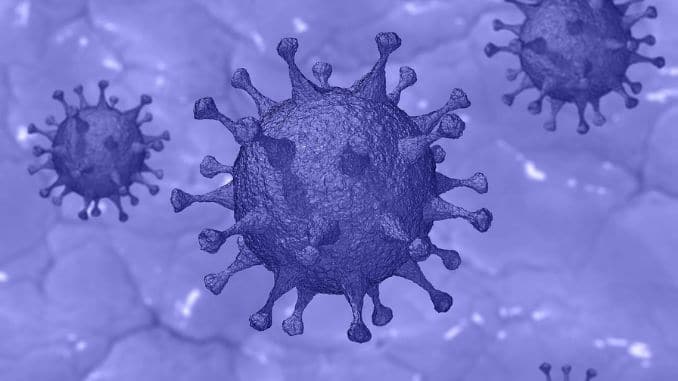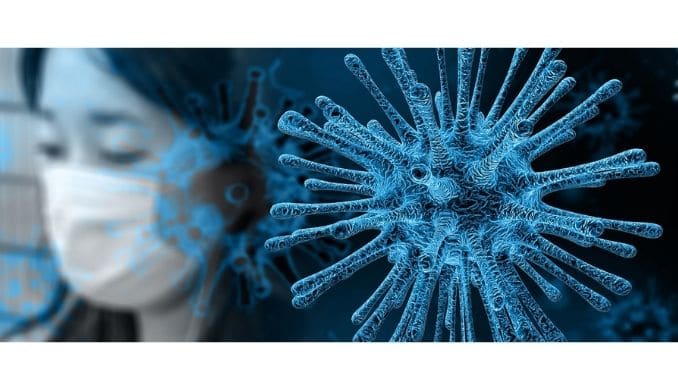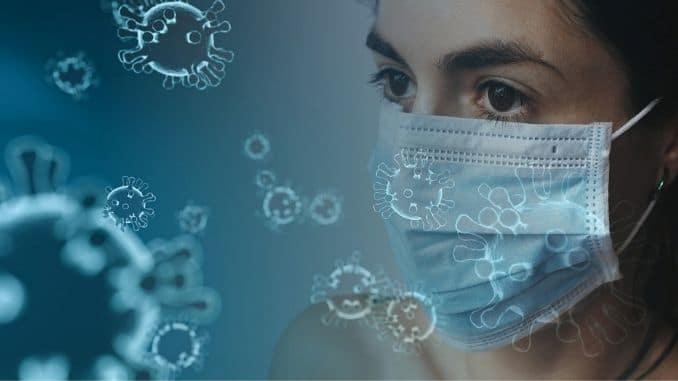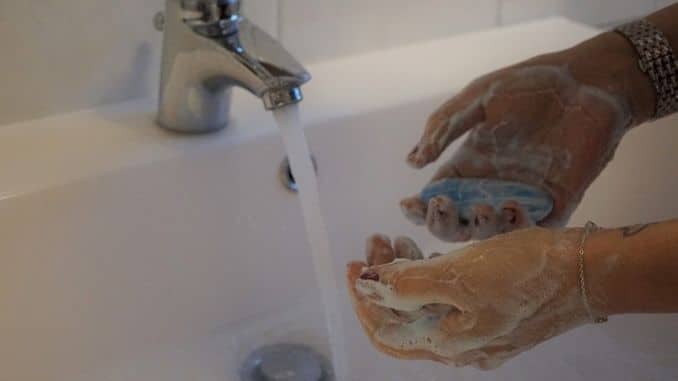
No matter who you are or where you live, your life has undoubtedly been disrupted by the novel coronavirus, or COVID-19, as it’s called.
As you’re washing your hands for the 100th time and adjusting to school and event cancellations — perhaps even working from home — you may wonder what this virus is, exactly, and what we may expect over the weeks and months to come.
Here’s what we know so far, and how you can protect yourself and your family.
What Is Coronavirus?
As with many viruses, coronaviruses (CoV) belong to a large family of viruses found in animals like camels, cattle, turkeys, pigs, bats and others. The name “corona” comes the crown-like spikes on the surface of the virus — “corona” is Latin for crown or halo. These viruses don’t usually infect humans. However, occasionally, they can make the jump from animals to humans.
Two examples of this occurring include:
- MERS-CoV: In 2012, the MERS-CoV (Middle East Respiratory Syndrome Coronavirus) jumped from dromedary camels to humans to cause an outbreak that started in Saudi Arabia.
- SARS-CoV: In 2003, the SARS-CoV (Severe Acute Respiratory Syndrome Coronavirus) jumped from civet cats to humans to cause an outbreak that began in China.
Both of these viruses are thought to have originated in bats. In other words, the virus traveled from the bats to camels and civet cats and then to humans.
This current strain of CoV has never been seen before, so it’s called the “novel” coronavirus, or coronavirus disease 2019 (COVID-19). So far, we don’t know from which animal it originated. Authorities first identified it in Wuhan City, Hubei Province, China, in December 2019. A small cluster of people was diagnosed with pneumonia, and scientists identified this new virus as the cause.
At first, it was believed that the virus had originated from the seafood and live animal market in Wuhan, but we can’t be sure about that yet. An analysis published in the scientific journal The Lancet showed that the first patient to get sick had not had any contact with that market while several of the other first patients had. Experts are still working to trace the outbreak to its source.
How Is COVID-19 Spread?
From that original group of people with pneumonia, the virus traveled to friends and family and healthcare staff. As of March 18, 2020, the Centers for Disease Control and Prevention (CDC) states there were 191,127 confirmed cases worldwide and 7,038 cases in the United States. There have been about 7,807 deaths globally and 97 in the U.S. These numbers are rising daily.
On March 11, 2020, the World Health Organization (WHO) designated COVID-19 as a “pandemic,” which means that cases have now been detected in most countries worldwide. The virus is quite contagious and is thought to spread from person-to-person through respiratory droplets produced when an infected person coughs or sneezes. A single cough, for example, can produce up to 3,000 droplets.
These droplets can land in the mouths or noses of people nearby, may be inhaled into the lungs or may land on surfaces to be picked up later. Researchers don’t know for sure how long the virus may survive on surfaces, but other similar viruses like SARS and MERS could live on metal, glass and plastic for as long as nine days. There is also some evidence that COVID-19 may live in droplets for up to three hours after being coughed out into the air.
It’s also important to be aware of “community spread.” Whereas initially, most cases in the U.S. occurred because someone had returned from traveling to another country where people were infected like China — or someone had come into contact with someone who had recently returned from one of those countries — now we are seeing areas with community spread.
This means that one or more people in an area have been diagnosed with coronavirus but haven’t traveled or aren’t sure how or where they became infected. They can’t trace the source of their infection, such as being able to say that they traveled somewhere or were near someone who did.
In general, community spread is more dangerous because it is more likely to lead to additional infections. That’s why areas, where community spread has been identified, tend to have stricter restrictions on movement within the community.
What Are the Symptoms of COVID-19?
One of the things the experts are telling us is that it’s important to watch for symptoms. Like other types of respiratory illnesses, COVID-19 typically causes the following symptoms to appear within two to 14 days after exposure to the virus:
- Fever
- Cough
- Shortness of breath
- Body aches
- Fatigue
- Nasal congestion and/or runny nose
- Sore throat
The symptoms can range from mild to more severe and some people have no symptoms at all. Those who have mild symptoms are advised to stay home and treat the illness like any flu. Get some rest, drink lots of fluids and do your best to avoid spreading it to others in the household.
Should the symptoms become more serious, it’s important to call your doctor. Experts suggest you call rather than visit the doctor’s office to avoid spreading the virus to others. Your doctor will direct you to the right healthcare facility that is prepared to receive potential COVID-19 patients.
Examples of more severe symptoms that can lead to pneumonia or may signal present pneumonia, include:
- Shortness of breath
- High fever
- Severe cough
If you notice the following symptoms, call your doctor or emergency care immediately. Notify the operator that you may have COVID-19:
- Persistent pain or pressure in the chest
- Difficulty breathing
- New confusion
- Bluish lips or face
Who Is Most at Risk for COVID-19 Complications?
Most people who develop COVID-19 will get better with time, just as they would when afflicted by any other virus. But some people are at risk for more serious complications, including pneumonia, kidney failure, and even death.
From what we know so far, those more at risk include:
- Older adults (60 years and older), with risk increasing by age
- Those with underlying medical conditions like heart disease, diabetes, kidney disease, liver disease or lung disease
- Those with compromised immune systems, such as those with cancer or going through cancer treatments, those on immunosuppressant medications or those who have HIV or AIDS
Because the virus is new, there is currently no vaccine to prevent it. Scientists are working on one, however, and restrictions have been lifted to speed it to trial.
The good news is that this virus seems to be less deadly than other types of coronaviruses. SARS killed about 9 percent of those infected while MERS killed about one-third of people infected. So far, COVID-19 has a mortality rate of about 3 to 4 percent, but it has become more widespread than both SARS and MERS. It is, however, more deadly than the seasonal flu, which has a fatality rate of about 0.1 percent.
These numbers may be adjusted over time as more people are tested and scientists learn more about the disease.
How Do I Keep from Getting Infected With COVID-19?
The CDC, WHO and other health organizations have advised everyone to take the following precautions:
- Stay informed of the latest information on the outbreak — check the WHO website, CDC’s website or your national or local public health authority.
- Wash your hands regularly with warm soap and water or with an alcohol-based hand rub. Hand sanitizers should contain at least 60 percent alcohol — alcohol-free products do not kill the virus as effectively. Wash for at least 20 seconds each time. Apply lotion afterward to protect your skin from drying out.
- Avoid touching your eyes, mouth, and nose as that’s how the virus moves from your hands to inside your body.
- Maintain social distancing, which means keeping at least a 3-foot buffer between you and other people. Avoid large gatherings and crowded areas. Instead of shaking hands, bump elbows, nod or bow. If you are at high risk for complications, stay home as much as possible.
- Practice respiratory hygiene. Cover your mouth and nose with a tissue or your bent elbow when coughing or sneezing. If possible, wear a facemask when around other people, such as when entering a healthcare provider’s office.
- Disinfect “high-touch” surfaces daily — these include doorknobs, cellphones, faucets, sinks, light switches, keyboards, tables, desks and countertops. Use warm soap and water or a germ-killing solution. You can make your own solution containing 70 percent alcohol or combine 5 tablespoons (1/3 cup) of household bleach per gallon of water.
- Self-quarantine if you are knowingly exposed to the virus. If you think you have been exposed, call your doctor for advice — do not go to the doctor’s office unless you are directed to. If you start feeling unwell, even with mild symptoms like having a headache and runny nose, do not go to work. Stay home until you recover to avoid spreading the disease to others.
- If someone in your household tests positive for coronavirus, keep the entire household at home. Keep the infected person in one specific “sick room” away from the others. Use a separate bathroom if possible.
In the U.S., the government has asked people to follow additional precautions for 15 days starting March 16, 2020. At the end of the 15 days, the government will revisit the guidelines based on the virus’s progress:
- Avoid social gatherings in groups of more than 10 people.
- Avoid eating or drinking at bars, restaurants and food courts — use drive-thru, pick-up or delivery options.
- Avoid discretionary travel, shopping trips, and social visits.
- Don’t visit nursing homes, retirement homes or long-term care facilities unless you are there to provide critical assistance.
How to Cope With the COVID-19 Situation
As the virus spreads and we face more restrictions on our everyday lives, it’s understandable that we may feel a rising sense of anxiety.
It’s important to realize that as long as we follow the directions given by healthcare experts, we are likely to see the illness decrease over time. China has already reported decreasing cases, so it’s likely that other countries will, too, as long as people are careful to do what’s required to stop the spread.
The risk of being exposed to the virus is still low for most Americans. However, as the outbreak expands, the risk will increase. That means more of us will be advised to stay home as much as possible, avoid gatherings and make other adjustments that can affect the quality of life.
To cope with any anxiety that you may be feeling, follow these tips:
- Try journaling — getting your thoughts out can help reduce stress and anxiety.
- Keep exercising. If you can’t go to the gym, take a walk or jog outside, go for a bike ride, use a home treadmill or perform a series of exercises you can do anywhere like jumping jacks, push-ups, squats and jump rope.
- Maintain a routine. Even if you must work at home or stay home for other reasons, keep a regular routine in your household that includes standard wake times and bedtimes, mealtimes and productive activities. This may be a great time to get some spring cleaning or organizing done. Maybe it’s a great opportunity to take an online course?
- Stay informed. Don’t believe the hype and the myths that tend to circulate during a crisis like this. Check with reputable health authorities regularly so that you are well informed of the situation.
- Avoid overwhelming. Sometimes it’s best to turn off the news and engage in a fun activity like crafting, playing a musical instrument, coloring, playing with a pet, reading or doing something else you enjoy that will help you get away from the stress for a while.
- Realize it’s not forever. Remain positive. We will get through this — it won’t last forever. Remind yourself that we must adapt for now but that, eventually, the disease will subside.
For help keeping your immune system strong, make sure to check out our 14-Day Immune Health Quick Start Program, here!
.








